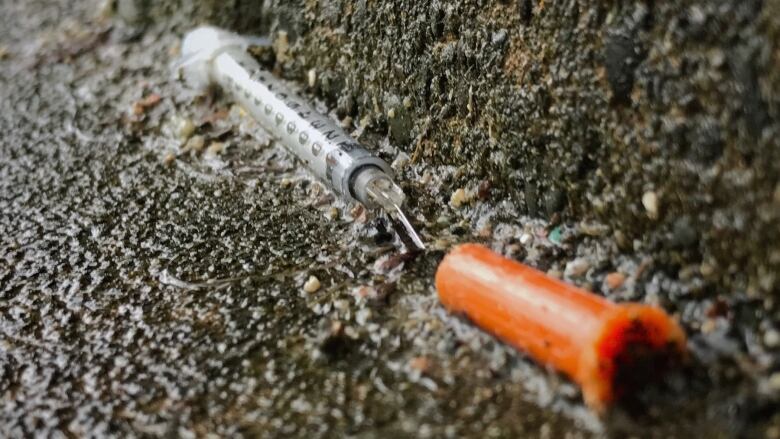Why London's HIV rates are growing faster than anywhere in Ontario
While HIV infection rates are shrinking across Ontario, the virus has seen an uptick in London

Health authorities in London say while HIV infection rates across Ontario are shrinking, London has seen a sharp surge with a higherthan average prevalenceof needle drug use likely to blame for the problem.
It comes a little over a year after officials with the Middlesex London Health Unit declared a public 'health emergency' over rising rates of blood borne HIV and heptatits C.
"It's different from the rest of the province," Shaya Dhinsa, the manager of sexual health with the Middlesex London Health Unit told London Morning host Rebecca Zandbergen Monday.

"The rates of HIV (in London) are increasing, particularly among people who inject drugs, whereas in the rest of the provincethe rate is decreasing. Those who are particulary infected with HIV elsewhere in the province areparticularly men who have sex with men."
Not sure why
Dhinsasaid medical authorities can't explain for sure why London is unique among Ontario cities when it comes to rising rates of HIV.
"It could be multiple issues," she said, noting the use of crystal meth and opioids, such as hydromorphone could play a role. "It could be sharing injection drug use equipment, it can be the use of different drugs."
"We don't have an exact reason why," she said. "There are other issues, mental health issues and addiction issues that go along with this population."
While London might be an outlier in Ontario, Dhinsasaid the situation the city finds itself in is similar to what medical authorities are currently struggling with in Saskatchewan or Vancouver in the 1990s.
Following BC's lead
Dhinsa said health officials in London are looking to how Vancouver and BC dealt with its HIV epidemic that struck the city in the 90s, by rolling out a similar program that they know gets results.
The HIV Stop program in BC has reduced rates of HIV infection to the point where there were only 20 cases of the disease reported across the province last year, compared to 58 in London.
London is modelling its attempts to deal with the problem on what worked on the west coast, with an outreach team that includes a public health nurse, an outreach worker and a program lead, similar to BC's HIV Stop program.
"We call it the HIV outreach team," she said. "This is the first outreach program for London. There is no other program like this."

"They will meet people where they're at. The idea is to engage people, to get them into treatment and care."
Dhinsasaid the idea is to use the team to build relationships with people who are difficult to reach, especially those who might live on the margins of society and are suspicious of the medical system.
Already seeing results
She also adds that even though the program has only been up and running since June, it has already yielded results, with 61 new clients that have been signed up, eight of whom are actively engaged in medical care.
However, the city's health unit has been getting results without provincial help. Dhinsa noted public health officials in the city have had to reallocate money meant for other programs in order to deal with the growing problem.
"It is frustrating in that there are people who are very ill," she said. "We've been trying to get more and more funding and it is slowly coming."
So far public health officials have received a $1.2 million grant from the provincial Ministry of Health over five years, but they're hoping for another $1.5 million from the province to pay for more outreach nurses.
"This isn't a downtown core area problem. This is a city wide problem," Dhinsasaid. "[Dirty needles] are found in multiple locations and it is scary for families with children."












_(720p).jpg)


 OFFICIAL HD MUSIC VIDEO.jpg)
.jpg)



























































































